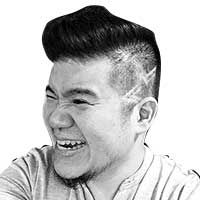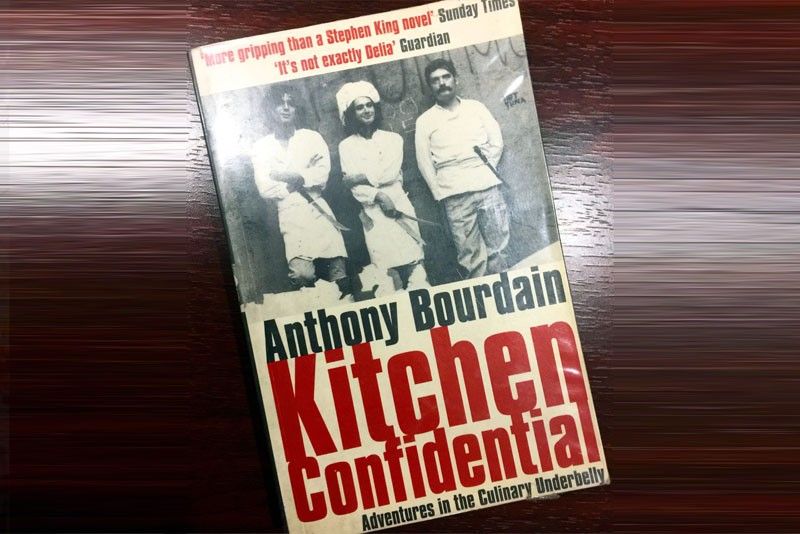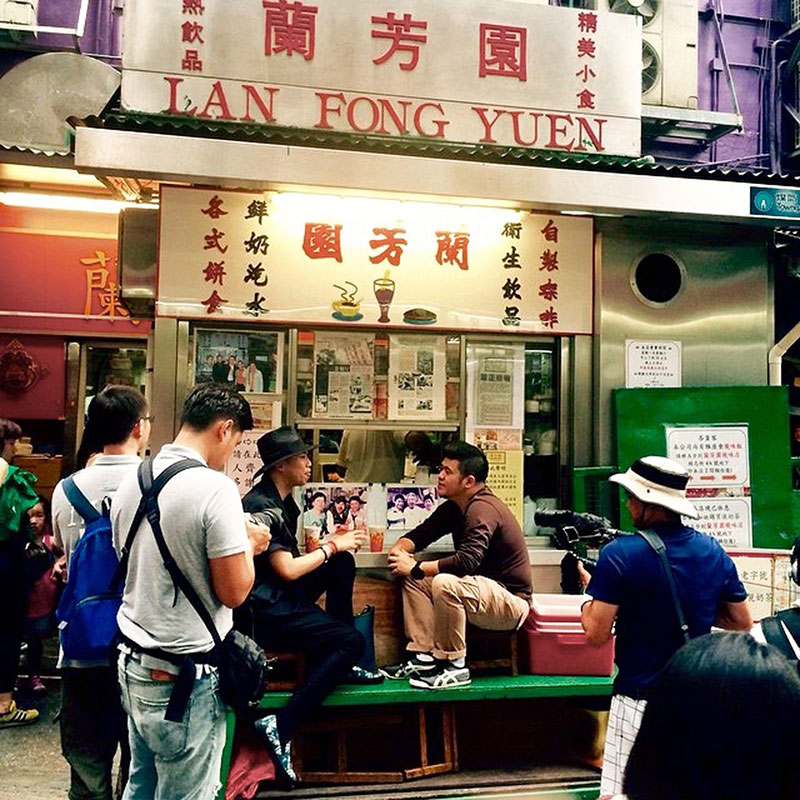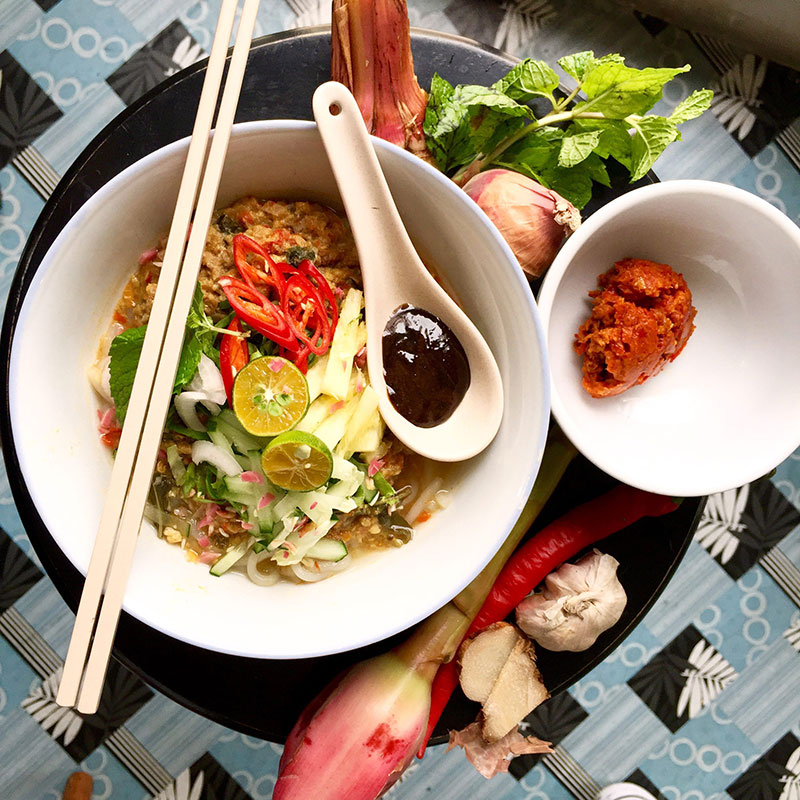What losing Bourdain means


It was in April of 2015 when I found myself in Hong Kong on a cool, gray morning, waiting for the camera crew to set up, taking stock of what was about to happen. I was about to begin shooting the fifth season of my TV show, but the first with a travel format and the first time I would begin to formally write for it. It was also 10 years — almost to the day — since I first picked up Anthony Bourdain’s bestselling book, Kitchen Confidential.
“Do you know Anthony Bourdain?” It was April 2005 and it was also a cool, gray morning. I was being interviewed for a dishwashing position at Earl’s, a neighborhood restaurant in downtown Vancouver, and as the chef was satisfied I had the right attitude, he asked me the question. When I shook my head no, he told me to get a copy of Kitchen Confidential and promised that it would have everything I needed to know to succeed in the food industry. I heeded his word and bought a copy a few days later.
Bourdain’s words immediately resonated with me, none more so than these: “At the base of my right forefinger is an inch-and-a-half diagonal callus, yellowish-brown in color, where the heels of all the knives I’ve ever owned have rested, the skin softened by constant immersion in water. It distinguishes me immediately as a cook, as someone who’s been on the job a long time. You can feel it when I shake my hand, just as I feel it on others of my profession. It’s a secret sign, a sort of Masonic handshake without the silliness.”
This was a guy who understood me. I was startled by how much his words penetrated my thoughts and feelings. Here I was, a recent graduate of culinary training, having no idea how to make my mark in the industry and here was this veteran chef, writing not only about how a cook’s life would go, but he also managed to be completely honest about his thoughts and feelings. As I read page after page, I realized that I had found my hero, one whose life (apart from the struggles with cocaine and heroin, of course) I would try to emulate in my own way.

Ten years to the day after I read Kitchen Confidential,I film my first episode abroad in Hong Kong.
As a young cook, I shut up and worked, never complained and endeavored to tough out the unforgiving food industry Bourdain warned me about. Why? “Skills can be taught. Character you either have or you don’t,” he says. No job was too menial for me. Why? I remembered what he said: “Too lazy to peel garlic? You don’t deserve to eat garlic.”
Finally, for the first time in my life, I knew what I was put on this earth for. I finally confirmed what I first declared to myself right before I finished culinary training, which was that I wanted to cook for a living. While I couldn’t explain why eloquently, he did so with ease. “For a moment, or a second, the pinched expressions of the cynical, world-weary, throat-cutting, miserable bastards we’ve all had to become disappears, when we’re confronted with something as simple as a plate of food.”
It would seem far-fetched to most that food could save this world from falling into chaos, but he declared it to be true. I wanted to be part of the group of people that would prove it true by cooking for people. I vowed never to stop doing it.
My Hong Kong guide and I walked through and looked at a line of roast goose and as the cameras rolled, I struggled to ask a question. In my mind, I was trying to think of a question that Bourdain, my hero, would ask. Then, I realized by trying to think like Bourdain, I would be dishonoring him. I asked for a second take and began asking questions I wanted to ask, without caring what others thought.
“This is chef Sharwin. He travels for his food show on TFC. He’s like Anthony Bourdain,” my friend Joe Aquilizan from San Francisco said with a sly smile as he introduced me to his friend back in 2016. I quickly shook my head no and said I’m nowhere near as good as Bourdain. I quickly assured them that Bourdain’s job was safe because no one, least of all myself, could ever be as great as him. To be perfectly candid, though, I think all of us engaged in the food TV business are like him. After all, how is it that chefs like me get to travel and eat the best local food at every stop? Go back to before 2001, before Bourdain shot A Cook’s Tour, and you’ll find very few examples of traveling food shows.
Now in 2018, the question isn’t, “How many shows are there?” It’s, “What hasn’t been done yet?” While I continue to endeavor not to mimic Bourdain, all of our careers and shows are descendants of his work. We enjoy traveling the trail that he has blazed for us. The only thing left for people like me to do is honor him for doing that. That’s why on TV, I ask not only about how to make a certain dish, I make it a point to ask about the history behind its creation and the culture that has embraced it. He will never know it, but his pioneering work has provided a life that I treasure so much.

Asam laksa was a common dish we enjoyed when we did episodes in Penang separately.
We wrapped up our first shoot day in Hong Kong, and on the way home, I began to write the episode’s voiceover segments in my head. I wondered, too, how Bourdain’s writing process went. In a strange way, I felt the pressure of writing the best possible voiceover I could, as if he would somehow read it and grade it.
“I almost said yummy. What the f*** is happening to me?” Bourdain joked as he finished his bowl of asam laksa. It’s a random night in 2018 and I am watching the Penang episode of No Reservations. I don’t blame him for his moment of temporary insanity. Just the year before, I could not explain why I danced in front of a camera as I, too, was about to enjoy a bowl of asam laksa. That night, I could not sleep. Perhaps it was the crazy realization that I have done shows in the same places Bourdain did his, but I think it was mostly just the realization of how unbelievably lucky I’ve been. Again, what I could not put into words, he does beautifully. “I’m just saying, I guess, that I got very lucky. If I hadn’t enjoyed a freakish and unexpected success with Kitchen Confidential, I’d still be standing behind the stove of a good but never great restaurant at the age of 53.”
But now, he is gone. The world loses one of its most talented people and I lose the man who provided my life direction and a career I treasure. I lose the one person whose words always seem to echo what is in my heart. It’s a loss I have yet to come to grips with, but there really is only one way to respond. I need to continue to cook food and travel the world. I must continue to listen to, create and tell stories of what a wonderful world we live in. I’ll throw in some F bombs along the way.
* * *
Follow Sharwin’s food adventures on Instagram @chefsharwin and for questions, reactions, recipe and column suggestions, you can contact him on www.sharwintee.com.



















